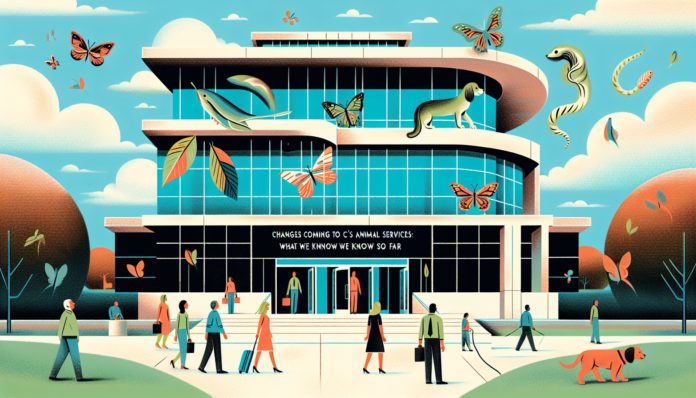D.C.’s Animal Services: A Coming Shake-Up
In recent months, the landscape of animal services in Washington, D.C., has been poised for significant changes. As the city grapples with various challenges related to animal welfare, public safety, and resource allocation, the impending shake-up promises to reshape how these services operate. This article delves into the key aspects of the upcoming changes, their implications for the community, and what residents can expect moving forward.
Background: The Current State of Animal Services
D.C.’s animal services have long been a topic of discussion among residents and advocacy groups. The Department of Health’s Animal Services Program is responsible for a range of duties, including animal control, sheltering, and public education on responsible pet ownership. However, criticisms have emerged regarding the effectiveness and efficiency of these services, particularly in addressing issues such as stray animals, overpopulation in shelters, and the need for better community outreach.
The Proposed Changes
In response to these challenges, city officials have announced a series of reforms aimed at revitalizing animal services. While specific details are still emerging, the proposed changes include:
-
Increased Funding and Resources: One of the primary goals of the shake-up is to secure additional funding for animal services. This financial boost is expected to enhance shelter facilities, improve veterinary care, and expand community programs aimed at responsible pet ownership.
-
Enhanced Community Engagement: The city plans to implement more robust outreach initiatives to educate residents about animal welfare. This includes workshops, seminars, and partnerships with local organizations to promote spaying and neutering, responsible pet ownership, and the importance of adopting shelter animals.
-
Streamlined Operations: To improve efficiency, the city is exploring ways to streamline operations within the animal services program. This may involve restructuring staff roles, improving data management systems, and adopting new technologies to better track animal populations and service requests.
- Collaboration with Nonprofits: The city aims to strengthen partnerships with nonprofit organizations dedicated to animal welfare. By collaborating with these groups, D.C. hopes to leverage their expertise and resources to enhance service delivery and community outreach.
Implications for the Community
The proposed changes to D.C.’s animal services are expected to have far-reaching implications for both residents and animals in the city. For pet owners, increased funding and resources could lead to improved access to veterinary care and training programs. Additionally, enhanced community engagement initiatives may foster a greater sense of responsibility among pet owners, ultimately reducing the number of stray animals and shelter overpopulation.
For animal advocates, the shake-up represents a long-awaited opportunity to address systemic issues within the current framework. By prioritizing collaboration with nonprofits and community organizations, the city can tap into a wealth of knowledge and experience that can drive meaningful change.
Challenges Ahead
While the proposed changes are promising, they are not without challenges. Securing adequate funding in a competitive budget environment will be crucial for the success of these reforms. Additionally, ensuring that all stakeholders—residents, animal advocates, and city officials—are aligned in their goals and expectations will require ongoing communication and collaboration.
Moreover, the implementation of new programs and initiatives will necessitate careful planning and execution. The city must be prepared to adapt and respond to feedback from the community to ensure that the changes meet the needs of both residents and animals.
Conclusion: A New Era for Animal Services in D.C.
As Washington, D.C., prepares for a significant transformation in its animal services, the community stands at a pivotal moment. The proposed changes hold the potential to enhance the welfare of animals, improve public safety, and foster a culture of responsible pet ownership. With a commitment to collaboration and a focus on community engagement, D.C. can pave the way for a brighter future for its furry residents. As these developments unfold, residents are encouraged to stay informed and actively participate in shaping the future of animal services in their city.
